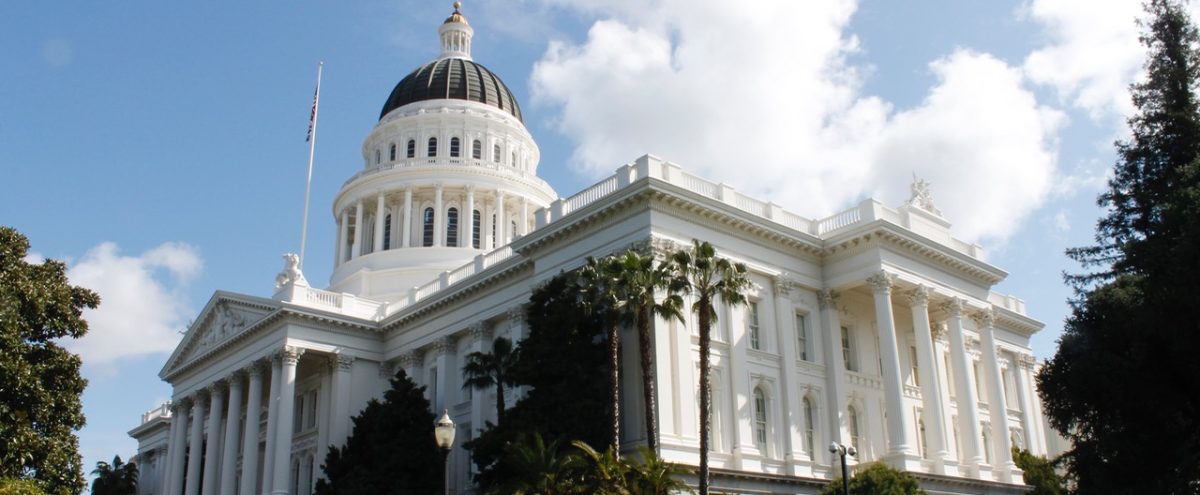
Sacramento Capitol Building image via wikipedia user Suvicce
Written by Frank Lopez
The new year has begun, and with it the implementation of a slew of new laws that were passed and signed in the legislative year 2023.
Employers were paying close attention to a number of proposed bills in 2023, including a controversial minimum wage hike for fast-food employees, enhanced paid leave benefits and expansions on the prohibition of noncompete agreements.
As of Jan. 1 and other dates moving further into the year, businesses must comply.
The Business Journal covered many of the proposed bills in 2023, some which passed and some which didn’t, but these are some of the new laws that may have the biggest impact on employers.
Increased minimum wage
On Jan. 1, the California minimum wage increased from $15.50 to $16 an hour, with the minimum exempt salary increasing from $64,480 to $66,560.
The minimum wage for health care and fast-food workers is going up as well.
Senate Bill 525
Starting June 1, California health care facilities will be required to raise minimum wage schedules from $18 an hour to $23 per hour. The applicable minimum wage schedule depends on the type of facility and the nature and size of the business.
SB 525 will also require salary basis health care workers to earn a monthly salary equivalent to at least 150% of the health care worker minimum wage, or 200% of the applicable state minimum wage, whichever is greater.
Assembly Bill 1228
Effective in April, AB 1228 will require fast-food restaurants to raise the minimum wage for employees to $20 an hour.
This law will apply to chains of limited-service restaurants with more than 60 locations that share branding, marketing and products.
Additionally, the bill also establishes and authorizes a Fast Food Council that will certain standards for fast food restaurants, including minimum wage, working conditions, standards and training.
Senate Bill 699/Assembly Bill 1076
Effective on Jan. 1, this bill expands the Business and Professions Code’s prohibition on noncompetition agreements, no matter where or when the agreement was signed, even if executed outside of California.
It also creates a private right of action for former and prospective employees against any employer that tries to enforce a void noncompete agreement.
AB 1076 will require employers to notify employees who do have contracts containing a noncompete clause that the provision is void. Employees must be provided a written notice by Feb. 14.
Assembly Bill 2188/ Senate Bill 700
Two bills regarding employee cannabis use went into effect beginning January.
Assembly Bill 288 prohibits employers from discriminating against employees for their off-duty cannabis use off a job site or work premises.
SB 700 makes it unlawful for employers to request information or disclosures from job applicants about their prior use of cannabis.
Discrimination against applicants because of prior cannabis use obtained from criminal history is also prohibited unless the employer is given permission to consider or inquire about that information under the law.
Employers are still allowed to prohibit employees from being impaired by cannabis use during work hours.
Senate Bill 616
SB increases the required paid sick leave for employees from three days, or 24 hours, to five days, or 40 hours, for full-time employees.
Employers that “front load” the sick leave must provide 40 hours at the beginning of the year.
Those employers that use an accrual method must ensure employees have no less than 24 hours by the 120th calendar day of employment and at least 40 hours by the 200th.
Employers using an accrual method must also allow accrued sick days to roll over to the following year.
Employers can limit the use of accrued paid sick days to 40 hours a year.
The law also increased the accrual threshold rate from 48 hours to 80 hours.








